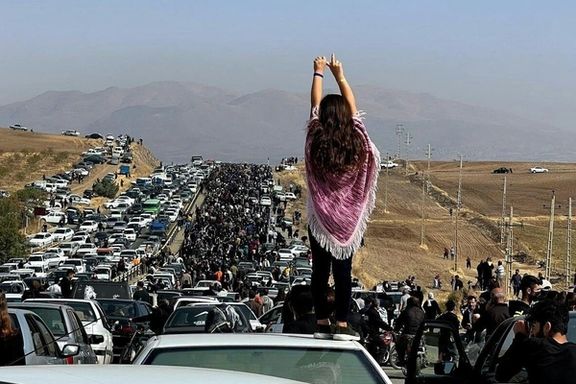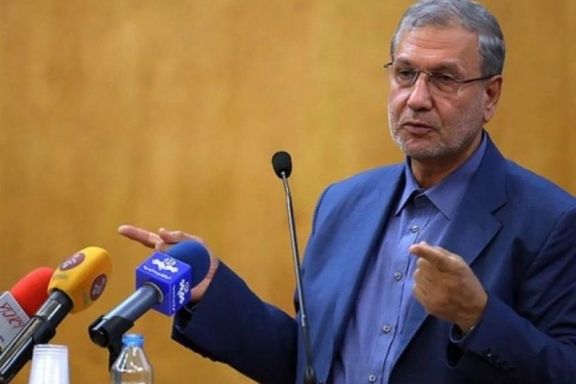Regime Insider Warns Of 'Bloody Confrontations’ In Iran

Former government spokesman Ali Rabiei has warned that there might be "bloody confrontations" ahead as Iran's nationwide uprising rages on for seven weeks.

Former government spokesman Ali Rabiei has warned that there might be "bloody confrontations" ahead as Iran's nationwide uprising rages on for seven weeks.
Rabiei, a long-time member of the Islamic Republic's intelligence community, wrote in a commentary in the reformist Etemad newspaper that some officials and political groups have marginalized "moderates" to facilitate Iran's destruction by those who keep creating fault-lines in the Iranian society.
Already, security forces have killed more than 300 protesters according to human rights monitoring groups, among than more than 40 children.
He argued that some "are exerting maximum pressure to disrupt the efforts of mediators between the government and the protesters. He said that there has been a security approach in the government aimed at systematically weakening the civil society and influential reference groups.
Rabiei was obviously referring to Iranian hardliners who attempt to get rid of all their political rivals and to monopolize power within Iran's ultraconservatives. Rabiei pointed out: "The political participation of various political groups and parties was extremely limited in two consecutive elections. As a result, the ballot box lost its function of creating mediators who played as go-betweens among various generations and their demands."
The former government spokesman, an experienced operator, was referring to the elimination of so-called ‘reformists’ from centers of power in the last two years. Since late 1990s the ‘reformists’ were urging rational and relatively moderate policies by the regime, but were gradually pushed aside by hardliners enjoying the support of the Revolutionary Guard and Supreme Leader Ali Khamenei.

Rabiei said that the government refused to pay attention to warnings about the Iranian society's vulnerabilities. He warned that throughout the course of history the absence of mediation between the government and the people has brought the two face to face in bloody loggerheads. He warned that without the moderates, there will be no way for even minimal understanding between the government and the masses.
Meanwhile, he also pointed out the dangerous situation resulting from the weakening of national media. In series of tweets, reformist commentator Ahmad Zeidabadi also noted the perils of Iranian media losing their role as the point of reference for the nation.
Zeidabadi wrote that Iranian officials have failed to understand that they have lost the "media war" to foreign-based Persian speaking media. He pointed out that Iranians find the state television reliable only when it tells the time. Otherwise, the state TV has said so many lies that its viewers cannot believe anything broadcast as news. Viewers will not believe the state TV even when it makes a point that is absolutely true, said Zeidabadi.
Meanwhile, understanding the need to change this situation, some Iranian officials speak of need for a change. Majles Speaker Mohammad Bagher Ghalibaf has said: "I hope security will be completely restored in the country soon, so that legitimate and necessary changes would begin to establish a new kind of governance in economic, social and political areas within the frameworks of the Islamic Republic." Social media users reminded him that only two weeks agio, he publicly and officially called for harsher measures against the protesters. They told him that the government should first change its behavior if it wants to reduce tensions.
This comes while Rahim Mohammadi, the representative of the Iranian Sociological Association has acknowledged in a speech at the Tehran Bar Association that the current protest ‘movement’ has become a household word and future change in governance will be unavoidable..
He said "The right to protest, non-violent struggle, and holding dialogue for public good" are some of the essential parts of this movement. He said its other characteristic is that Iranians are talking about their common dreams. Mohammadi added that old forms of government in Iran are outdated, and Iranians are currently looking for a new form of government based on their rights, their freedom, and their aspirations.